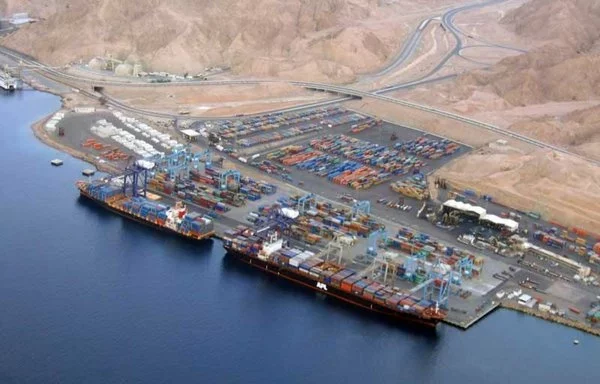Economy
Houthis' Red Sea attacks disrupt Jordan's economy
The kingdom, which relies heavily on imports and exports through the Red Sea, has been grappling with rising shipping costs and delivery delays.

By Noor al-Saleh |
AMMAN -- The Houthis' Red Sea attacks have led to shipping disruptions that have negatively impacted Jordan's economy, which is almost entirely dependent on food and energy imports.
The disruptions have persisted even after the Jordanian government took steps to mitigate the economic impact of the attacks by reducing some of the local charges such as duty, taxes and storage fees.
A total of 121,843 containers arrived at Jordan's Aqaba Container Terminal during the first third of this year, down from 148,454 in the same period in 2023, per the Jordanian Logistics Association (JLA).
Exports through the terminal also decreased, it said, with 29,764 containers arriving, compared with 42,510 containers during the same period in 2023.
JLA President Nabeel al-Khatib attributed this decrease to the ongoing shipping crisis in the Red Sea and adjacent waterways.
"Aqaba, Jordan's only seaport, is a critical hub for the country's imports and exports with a strategic location that makes it a gateway for goods entering and leaving Jordan," said GSMA Middle East and North Africa head Jawad Abbasi.
Aqaba port receives nearly one-third of the kingdom's imports through the Red Sea, also using it for more than 50% of its exports, he told Al-Fassel.
Jordan's tourism sector also has been hit hard by the Houthis' attacks, with a decrease in the number of ships docking in Aqaba.
Increased costs
The Red Sea crisis has created a "challenging environment for Jordan's potash and phosphate industry," Abbasi said, explaining that potash and phosphate are used to make fertilizers, which are vital to agriculture.
"All shipping lines have increased insurance and costs of moving shipments via the Red Sea," AGL Jordan Cargo and Freight managing partner Firas Kalbouneh told Al-Fassel.
These increases have been reflected in the cost of products and passed on to consumers, he said, noting that while "some of these products can absorb the rate increase, not all of them can."
Many shipping companies have opted to reroute their vessels in light of the Red Sea crisis, he said.
Trading companies from Asia started using Dubai's Jebel Ali port, sending shipments by road to Jordan, which also increased the shipping cost, he said.
"A container from Türkiye used to cost us $3,000; now it costs us around $5,800," said Kamel Ziad, vice president of a company that specializes in medical equipment.
Shipments transported via Africa's Cape of Good Hope take 16 days longer than those coming in via the Red Sea, bringing the total to 45 days, he told Al-Fassel.